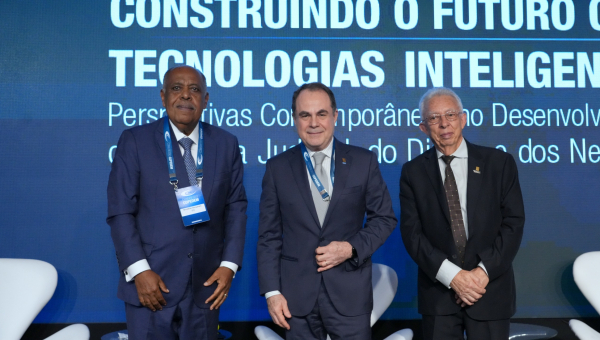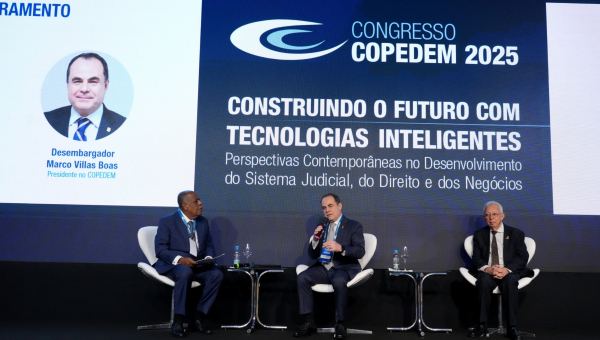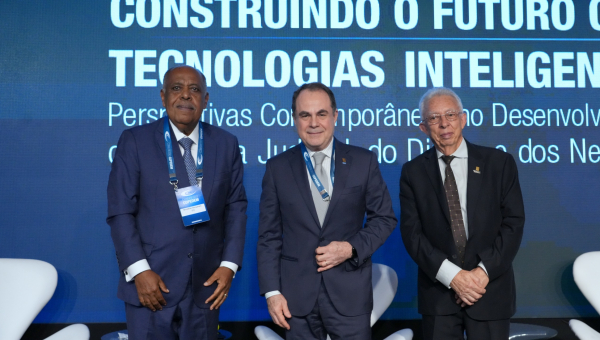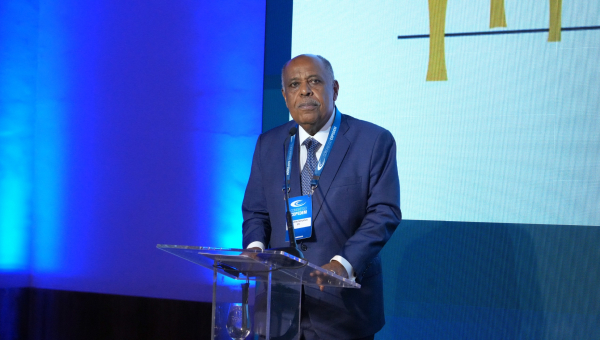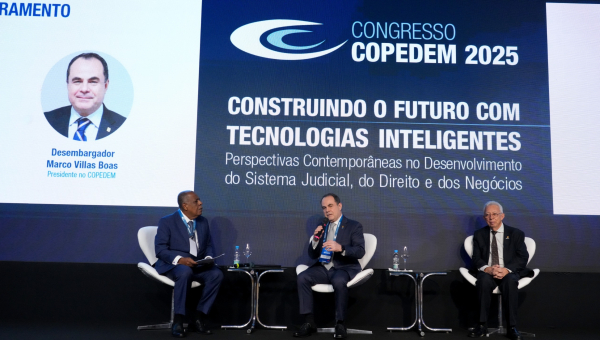
With discussions that mobilized representatives from all over the country - from the Judiciary, Academia and the Productive Sector - the Copedem 2025 Congress ended its programming on Saturday (April 12th) in the city of Rio de Janeiro, promoting connections between legal knowledge, technological advances and contemporary challenges for the judiciary.
After three days (10th, 11th and 12th) dedicated to debates on the impacts of artificial intelligence on the law, society and institutions, the event left us feeling that our mission had been accomplished. With the theme on “Building the future with intelligent technologies: contemporary perspectives on the development of the judicial system, law and business”, the programming covered topics such as Generative AI, Legal Security, Digital Inclusion, Cybersecurity, Digital Health, Mediation and Arbitration, Agribusiness, Social Security and Data Governance.
Justice Marco Villas Boas, president of the Permanent College of Directors of State Schools of the Magistracy (Copedem), general director of the Superior School of the Judges of the State of Tocantins (Esmat) and host of the event, highlighted the Congress as a space for learning, updating and commitment to the protection of fundamental rights in the midst of digital transformation.
"We have come to the end of another Copedem Congress. I would like to thank everyone who has enriched this event with their participation - especially the speakers who, over the course of three days, gave us a real crash course in artificial intelligence and its impact on society. We leave transformed and encouraged by the prospect that these tools can help us preserve rights, generate opportunities and boost development with social justice. I hope to see you again soon at the next edition," he said.
In an interview, Minister Douglas Alencar Rodrigues, of the Superior Labor Court (TST), described the Congress as a milestone in the debate on the future of the Judiciary. "Copedem is holding a historic congress, with absolutely relevant and central themes, and with highly qualified speakers. Justice Marco is to be congratulated. We need to reproduce events like this so that the Brazilian Judiciary realizes the relevance of artificial intelligence," he said.
Justice Benedito Gonçalves, of the Superior Court of Justice (STJ) and general director of the National School for the Training and Improvement of Magistrates (Enfam), took part in the closing ceremony and highlighted the strategic role of judicial training in the age of AI. He said that the Judiciary is called upon to lead this technological transition with responsibility and adherence to constitutional principles.
"Artificial intelligence, especially in its generative form, represents a paradigm shift. It is not a simple tool: it learns, adapts, creates and suggests solutions that escape the traditional logic of law. This new territory requires caution, ethics and preparation. At this Congress, we discussed regulation, digital sovereignty, cybersecurity and data governance in depth. There was a consensus: it's not enough to implement technology - it has to be molded to the values of the law," he said.
Recognizing the trajectory of Copedem, Minister Benedito reinforced the importance of the event as a space for national coordination among judicial schools, encouraging didactic innovation and training magistrates connected to contemporary reality.
“The moment demands a willingness to learn and relearn. The speed of change must not suffocate legal reflection. Justice requires more than ready-made answers - it demands sensitivity, empathy and a commitment to human dignity. The contributions of this Congress show that the Judiciary is attentive, engaged and willing to lead this transition," he said.
